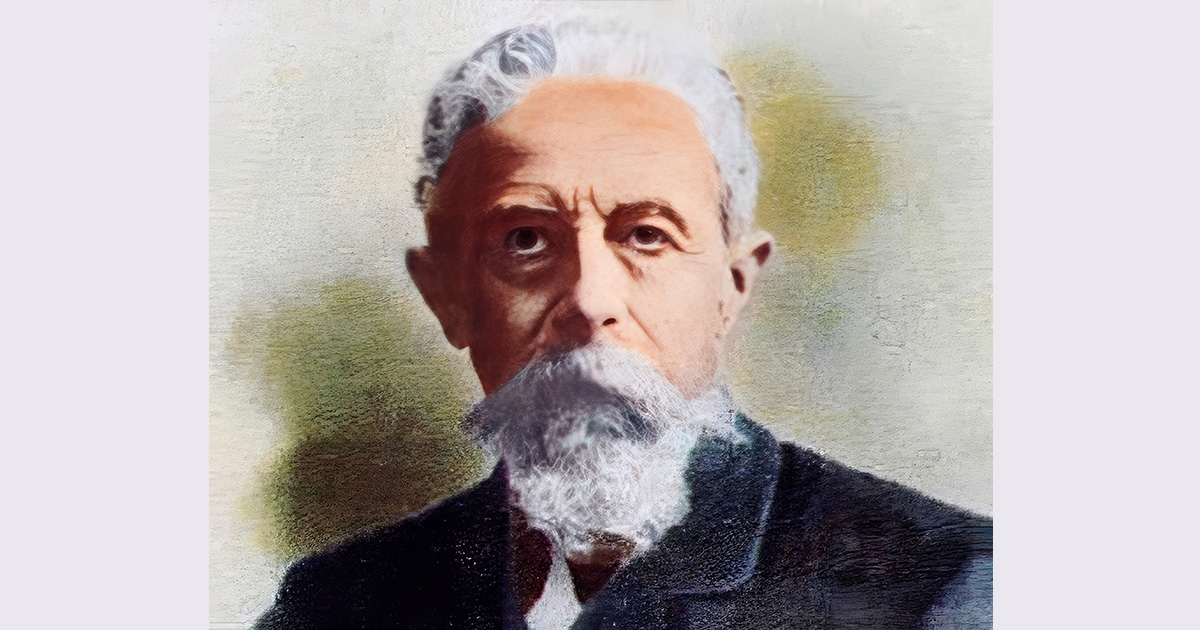Giuseppe Toniolo (1845-1918) was an economist, sociologist, and devout Catholic who played a crucial role in shaping the Church’s Social Doctrine, leaving a profound mark on Catholic social movements in Italy and Europe during the second half of the 19th century and the early 20th century. His life and work unfolded in a socio-political context marked by Italy’s unification, social tensions arising from industrialization, and the clash between socialist and capitalist ideas.
Giuseppe Toniolo was born in Treviso, Italy, in 1845. He earned a doctorate in law and became a professor of political economy. Throughout his life, Toniolo combined his academic career with his social and religious commitments, being an advocate of Christian thought in economics. He married Maria Schiratti, with whom he had seven children. He died in 1918, leaving an intellectual legacy that continues to influence the Church’s Social Doctrine. He was beatified in 2012.
Socio-political Context
Italy was undergoing profound changes following its national unification (completed in 1870), which radically altered the relationship between the Church and the State. Furthermore, Europe was facing the Industrial Revolution, which brought about large social inequalities and fostered the rise of ideologies contrary to Christian views, such as socialism and economic liberalism. The Church, with key figures like Toniolo, responded with theological and social proposals.
Contributions to Economic Sociology
Toniolo was a pioneer in an economic approach based on Christian ethics, opposing both socialism and liberal capitalism. He rejected class struggle as the driving force for social change and instead proposed cooperation between different social classes, guided by the principles of justice, charity, and fraternity. He argued that the economy should serve the common good, focusing on the dignity of workers and based on three pillars: the centrality of the person, the principle of solidarity, and the primacy of ethics.
Key Principles of Toniolo’s Thought
- The centrality of the human person: Toniolo viewed the economy as a system that should serve humanity. He criticized the reductionism of individualism and the utilitarian economics of liberalism, proposing instead a vision that placed the human person at the center—not as an isolated individual, but as a social being embedded in interpersonal relationships of responsibility and freedom.
- Solidarity and the common good: One of the key concepts in Toniolo’s thought was solidarity, understood as the principle that should regulate economic and social relationships. This principle was expressed through the idea of “solidarity correlation,” meaning the interdependence among society’s members, where social responsibilities toward the weakest were unavoidable. Toniolo believed that economic development must always consider the common good, understood as the improvement of both material and moral conditions for all members of society.
- Economy and morality: Toniolo rejected the separation between economics and ethics. Economic action should be directed not only toward personal profit but also toward what is “good,” that is, what is morally just. This was evident in his defense of a social function for private property and in his promotion of social justice through policies that improved workers’ conditions.
Toniolo and Social Action
Giuseppe Toniolo’s commitment was reflected in the promotion of social institutions that embodied his principles. In 1888, he founded the Catholic Union for Social Studies in Bologna, with the aim of uniting scientific thought with social promotion, demonstrating the social role of Christianity and supporting the responsibility of the Catholic upper classes. This institution served as a space for reflecting on issues such as labor organization, cooperation, and social justice.
Toniolo’s influence on the Catholic movement was also evident in his reflections on cooperation and the role of the individual within the economic system. He was a strong advocate of cooperative enterprises, a form of economic organization in which capital was not the primary factor, but rather the person, understood in a relational sense.
Toniolo and Corporatist Thought
Another important aspect of Toniolo’s social thought was corporatism. He proposed the creation of professional unions that would promote solidarity between classes, overcoming liberal individualism. These unions had not only an economic purpose but also sought to foster social cohesion and improve the working and moral conditions of the working classes.
Contributions to the Church’s Social Doctrine
Toniolo was one of the main collaborators in the drafting of the Rerum Novarum (1891) encyclical by Pope Leo XIII, a key document in the Church’s Social Doctrine. It addressed fundamental issues regarding labor, private property, and social justice. Toniolo advocated for an economic system that respected human dignity and promoted the common good through solidarity and subsidiarity. He contributed to the development of a Christian vision of social democracy, opposing both liberalism and socialism.
Involvement in the Catholic Action Movement and the Society of St. Vincent de Paul
Toniolo was a prominent figure in the Catholic Action movement, which promoted the active participation of laypeople in social and political life from a Christian perspective. He strongly believed that Catholics should be involved in politics to ensure that Christian values guided society. He was also linked to the Society of St. Vincent de Paul, contributing to its charitable work on behalf of the most vulnerable, reflecting his commitment to social justice.
Relevance of His Thought Today
Toniolo’s thought remains relevant today, particularly in the context of global economic and social crises. His emphasis on moral economics and his rejection of both liberal individualism and socialist collectivism offer a third path centered on integral human development and solidarity. His legacy resonates in contemporary Church documents, such as Benedict XVI’s encyclical Caritas in Veritate, which echoes many of Toniolo’s ideas about an economy serving the common good.
See also:








0 Comments